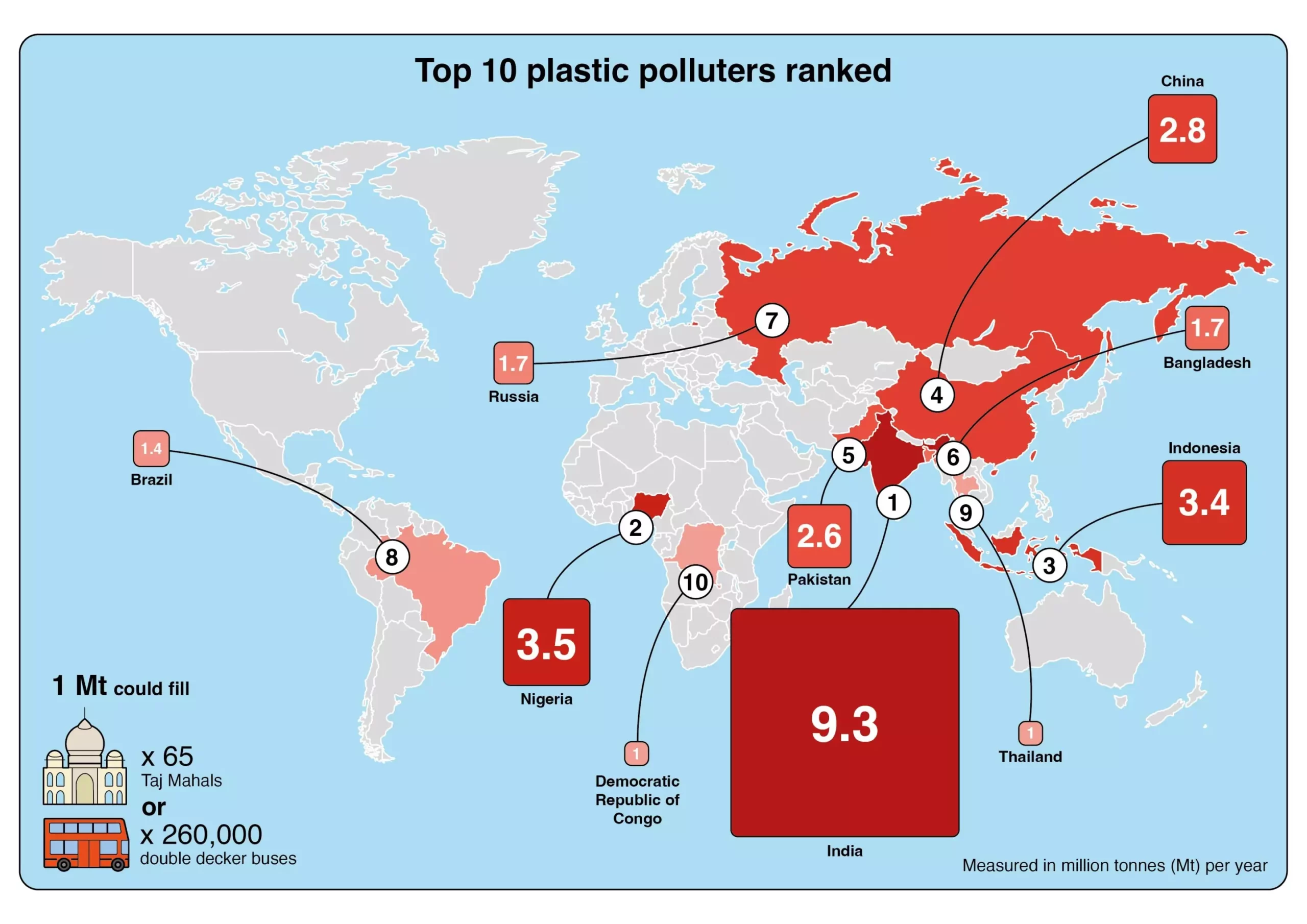Recent research from the University of Leeds has unveiled a staggering reality about plastic pollution worldwide, emphasizing an ongoing environmental crisis that impacts health and well-being across the globe. The study, by using advanced artificial intelligence to simulate waste management systems across over 50,000 municipalities, established a first-of-its-kind global inventory of plastic waste. In 2020 alone, it estimated that an alarming 52 million metric tons of plastic products found their way into the environment. To visualize this, one can imagine a line of plastic encircling the earth more than 1,500 times; an unexpected number that illustrates the scale of our negligence towards waste management.
The repercussions of this waste crisis extend beyond mere numbers. Over two-thirds of this plastic pollution originates from uncollected waste, indicating a severe deficiency in waste management services globally. The data exposes a chilling fact: approximately 1.2 billion individuals, or 15 percent of the world’s population, live without access to waste collection. The inability to dispose of waste responsibly forces many into desperate measures, such as open dumping or burning.
The report sheds light on an alarming facet of the plastic waste dilemma — the open burning of plastic. About 30 million metric tons of plastic, roughly 57% of the total plastic pollution generated that year, was incinerated without environmental safeguards. Burning plastic isn’t just a temporary solution; it leads to substantial health risks, including serious neurodevelopmental and reproductive issues. This burning process emits toxic substances that threaten human health, especially in marginalized communities that lack resources and infrastructures.
Dr. Costas Velis, leading the research, emphasized the urgent need for enhanced focus on this crisis. “It’s crucial to address the problems of open burning and uncollected waste, as these are not merely environmental issues but significant human health threats,” he stated. The direct link between poor waste management and public health crises makes it evident that managing waste should be prioritized on a global scale.
As the study reveals, the consequences of inadequate waste management are felt disproportionately in low-income communities. Dr. Josh Cottom pointed out that individuals living without waste collection services are often compelled to manage their refuse themselves, pushing them to pollute their environments through improper disposal methods. This emphasizes a critical call to action: access to waste management services should be considered a basic human right alongside water and sanitation.
Failure to address this inequality not only adds to the health burdens faced by these communities, but also perpetuates a cycle of poverty. By prioritizing sustainable waste management practices, there is potential not just to curb plastic pollution, but also to uplift the living conditions of billions globally.
The research brought forth an unexpected revelation regarding the leading contributors to plastic pollution. Contrary to formerly held beliefs that China was the worst offender, this study identifies India as the foremost contributor, generating approximately 9.3 million metric tons of plastic waste in 2020. Nigeria and Indonesia follow closely. This revelation shifts the narrative of accountability and underscores the necessity for context-specific solutions that consider each country’s unique challenges in tackling plastic waste.
These findings also draw attention to the considerable gap in plastic waste production between nations in the Global North and South. Though often characterized by lower overall waste figures, nations in Sub-Saharan Africa present alarming per-capita statistics, indicating an emerging crisis. As populations grow and waste management resources remain inadequate, this region risks becoming the world’s most significant plastic pollution contributor, calling for proactive measures to enhance their waste management systems immediately.
The research advocates for an ambitious approach to mitigating the plastic pollution crisis, proposing a binding international treaty aimed at establishing rigorous waste management standards. The scientists enjoined policymakers to recognize this research as crucial baseline data comparable to climate change metrics, urging for a cohesive response to what they term an “ongoing crisis.”
The study urges countries to adopt sustainable waste management systems and promote the circular economy. Recycling and resource recovery efforts can significantly minimize plastic pollution and enhance economic conditions, especially in developing countries. By establishing better collection and recycling systems, governments can begin to transform waste from a burden into a resource.
The stark findings of the University of Leeds’ study compel us to confront the reality of our plastic pollution crisis. Prioritizing sustainable waste management practices will not only curb pollution levels but will also improve the quality of life for countless individuals who currently suffer the consequences of inaction. The time for change is now. A concerted global effort is essential to ensure that every community, regardless of its socioeconomic status, has access to effective waste management services and is shielded from the health hazards associated with plastic pollution.

